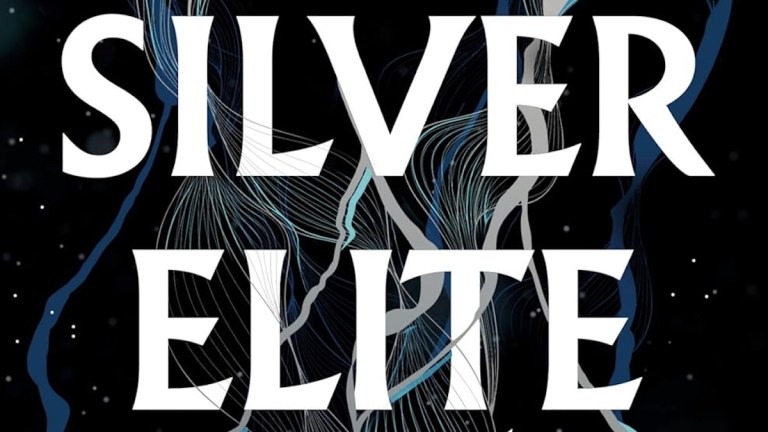The Newest BookTok Darling Silver Elite Proves Dire for Dystopian Literature
A new romance novel finds itself embroiled in online controversy, begging the question: what does dystopian literature owe its readers?

Nothing says romantic and steamy quite like an oppressive society run by a military dictatorship. Or rather, that’s what author Dani Francis’ debut novel, Silver Elite, posits. Released in May 2025, the book has been the most recent ammunition in the ongoing civil war raging within online literature communities.
Marketed as the first entry in a romantic dystopian trilogy, Silver Elite follows heroine and main protagonist Wren Darlington, who lives on the ambiguously named “Continent” and has predictably powerful psychic abilities she must keep hidden from an authoritarian regime.
Nothing about this premise is inherently controversial, and the book has received some stellar reviews, currently boasting a 4.11-star rating on Goodreads. It has also been making its rounds as the rising star of “BookTok,” the subsection of TikTok that recommends and reviews books. However, there has been growing negative discourse regarding Silver Elite, with many readers critical of its use of the dystopian genre to forefront a romance at the expense of worldbuilding
Against all odds, this book technically could be considered a dystopian novel, even if only in the most definitional sense, as it features a post-war, futuristic society with unjust suffering. Every so often, the author attempts to sprinkle in some political commentary that is superficial at best, as though it exists only to meet a quota necessary to earn the genre tag. She’ll drop details like all women of fertile age are required by the government to be on birth control, as pregnancies are regulated, and families require official requests. This would have been an ideal opportunity to explore the topic of bodily autonomy, the ways in which a government can overstep, or even how bureaucratic methods can be used to coerce submission. However, it only serves to explain why Wren won’t get pregnant after sleeping with the male lead.
A general lack of any nuance or substance helps to further dilute any impact the dystopian society could have had. The ruthless dictator orchestrating the oppression of the marginalized gets precisely 14 pages in a novel over 500 pages long, making for a horrifically underdeveloped antagonist.
At certain points Wren’s inner monologue veers toward abandoning her morals for a booty call, given that the male lead, Cross, is the son of the General. To make him even more repellant, Cross also is a captain in the elite military block that gives this book its name. The “Silver Elite” is tasked with capturing “Modifieds,” or the oppressed class in this society, of which Wren is a part of. This “enemies to lovers” trope in the novel sets up lines like “I don’t get involved with guys whose fathers are responsible for killing thousands of people like me,” to be followed immediately by a hot and heavy makeout session. With many scenes that follow this sequence, the guilt Wren feels for her attraction to a dictator’s spawn feels performative.
Meanwhile, the plot is riddled with so many holes it would trigger trypophobia, and the book manages to somehow be both overly contrived and simplistically vague, making for a tedious read. It’s a mind-numbing narrative that could not even be saved by the very romance the author wrote the book for, as the main pairing proves to be as lackluster and shallow as the rest of the novel.
If this book hadn’t been promoted as dystopian fiction, its greatest crime would have been that it is boring. However, the emphasis placed on it being specifically dystopian, to the extent that it drew comparisons to The Hunger Games, is what has made it cannon fodder for critics.
Dystopian fiction has a very significant role in literature, often serving as a reflection of current society. The best dystopian fiction creates parallels between power imbalances and injustice present in our political culture and global events. Think about George Orwell’s 1984 and its use of surveillance, or Nana Kwame Adjei-Brenyah’s Chain-Gang All Stars and its representation of capital punishment, though neither of these descriptors even scratches the surface of these novels.
Dystopian literature serves as a warning or premonition of where humanity might end up. It is quite literally “what if?” in its most radical form, and the issues in these novels are rooted in reality. Margaret Atwood wrote The Handmaid’s Tale using details, atrocities and events that all actually occurred. It is meant to be thought-provoking and to encourage readers to think critically about their role in systematic cruelty and governmental control, which is why it so often becomes more prevalent during times of political turmoil or humanitarian crises.
Taking these vital aspects of the genre into account, it becomes clear why Silver Elite grates on the nerves. To attempt to curate a narrative about orchestrated oppression for the sake of a romantic storyline feels disrespectful to the genre. Francis herself has described her motivation for writing this series as realizing that there was a missing market for “spicy dystopia.” Essentially, she wanted to recreate the sort of dystopian fiction that was so prolific in the 2010s but with sex in it.
This blasé reasoning for writing Silver Elite including wanting sexually mature themes in her novel adds salt to the wound, as it introduces another layer to why Silver Elite has aroused backlash. Over the years there has been bubbling frustration for many readers due to an increasing demand for more mature themes in literature, specifically of the sexual kind.
Now, explicit literature has existed basically since the human race started writing things down, from the recurring trend in Greek mythology of Zeus impregnating maidens in animal form to bizarre Victorian erotica to Grandma’s favorite bodice ripper. However, the internet and social media platforms allow for recommendations to reach an audience of millions, and its influence has led to explicit elements necessitating engagement. The phrase “Is it spicy?” truly haunts the aisles of Barnes & Noble.
This sexy stipulation is often partnered with the desire to read books where you can “turn your brain off,” and it has led to the production of commercial and easily digestible literature flooding the shelves of bookstores and oversaturating the general market for books.
Seeing books like Silver Elite, which could be aptly described as brainless, marketed as dystopian fiction and promoted as “grown up Katniss Everdeen” is particularly disheartening because it contradicts the very reason dystopian literature exists. In our current tumultuous political landscape, stories critical of fascism and nationalism become progressively necessary. However, the genre that makes social critique has fallen victim to the very capitalist and commodifying devices the stories aim to subvert, and that in itself feels dystopic.
